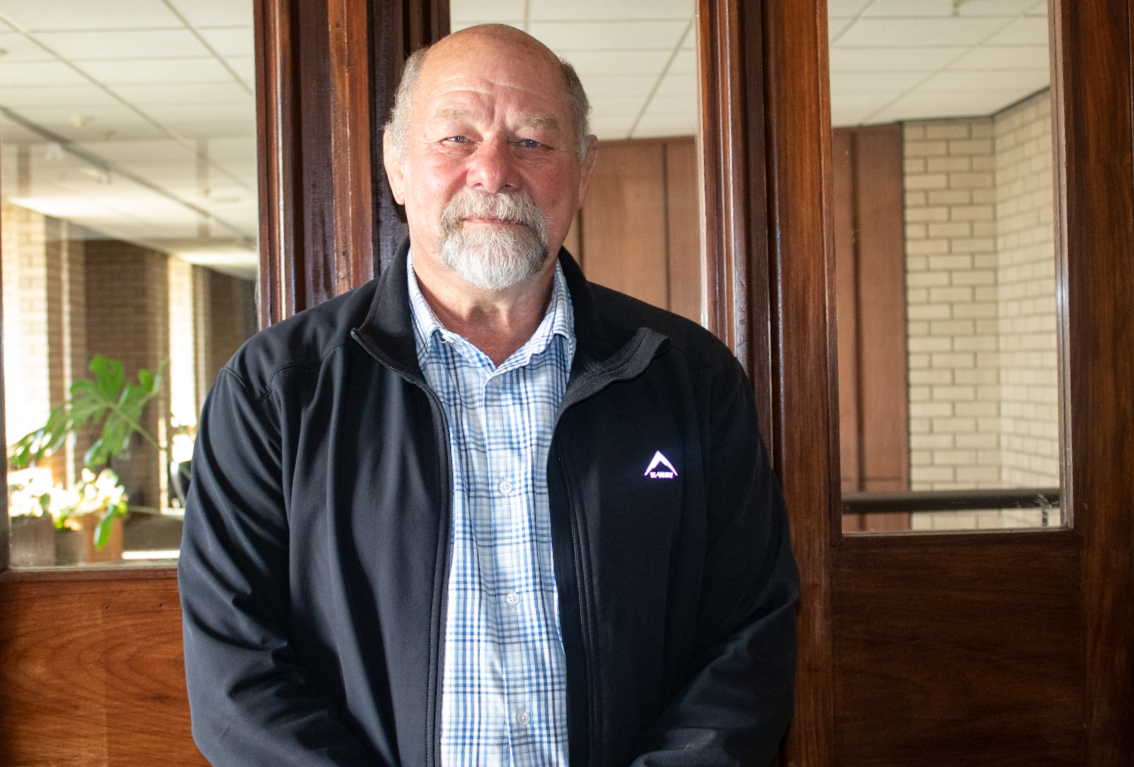
By Gcina Ntsaluba
In the heart of Makhanda, a quiet revolution is taking place. At its centre stands Hilton Haakonsen, project manager of the Social Employment Fund (SEF) of the National Arts Festival (NAF), who has spent the past three years turning unemployment into opportunity and despair into dignity.
When Haakonsen first took on the role in June 2022, Makhanda was in post-COVID-19 crisis. Over 100 illegal dump sites had sprung up all over the city. LItter was everywhere - stormwater drains were blocked. Roads were deteriorating, and infrastructure was crumbling. The city's state threatened to deter festival-goers from visiting the cultural hub that hosts South Africa's premier arts festival.
The economy was contracting and thousands of residents had never held formal employment. "Hopelessness is a terrible, terrible thing," Haakonse reflects. "We had young people who had never worked before, and older people who hadn't worked for many, many years."
The SEF, funded through the Presidential Employment Stimulus Fund, began modestly with 260 participants but rapidly expanded to 1,600 people within three months. Now approaching its fourth phase, the programme has employed over 5,000 residents across its three-year lifespan, injecting R3.5-million monthly into the local economy through wages alone.
What sets SEF apart is its comprehensive approach to community development. The programme operates nine specialised teams across Makhanda, from plastic collection and recycling to road maintenance and school support.
The programme's innovation extends beyond employment. SEF has developed a circular economy model, producing 40,000 to 50,000 seedlings monthly and creating recycled pavers from plastic, glass, and cement. These eco-friendly pavers have caught the attention of major contractors, with demand potentially reaching 50,000 units monthly.
"We've had people coming up to me and hugging me when they got their first salary," he recalls. "They said, 'I haven't been able to provide food or clothing for my family for 10 years'."
The programme operates with military precision, using biometric systems and geolocation tracking to ensure accountability. Workers have their photographs taken twice daily, which are compared against their profiles to prevent fraud. This stringent system has earned credibility with funders and the community alike.
Beyond individual transformation, SEF has visibly improved Makhanda's infrastructure. The organisation has cleaned illegal dump sites, replacing them with indigenous gardens, fixed countless potholes, and secured nearly R900 000 in road materials from the local wind farm development.
Haakonsen's vision extends beyond the current model. As the programme transitions toward self-sustainability in phase four, he envisions expanding recycling operations and potentially taking over the old indoor sports centre to increase production capacity to 50,000 pavers monthly.
The impact resonates through families and schools. Children who once saw unemployed parents at home now watch them contribute meaningfully to their community. Local businesses report increased income as residents have money to spend.
"The biggest thing is people have food," Haakonsen says, "and they know that at the end of the month, they have an income."
For Haakonsen, the most rewarding aspect isn't the infrastructure improvements or economic impact — it's watching hopelessness transform into hope, one job at a time.
